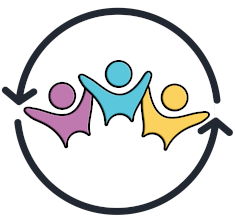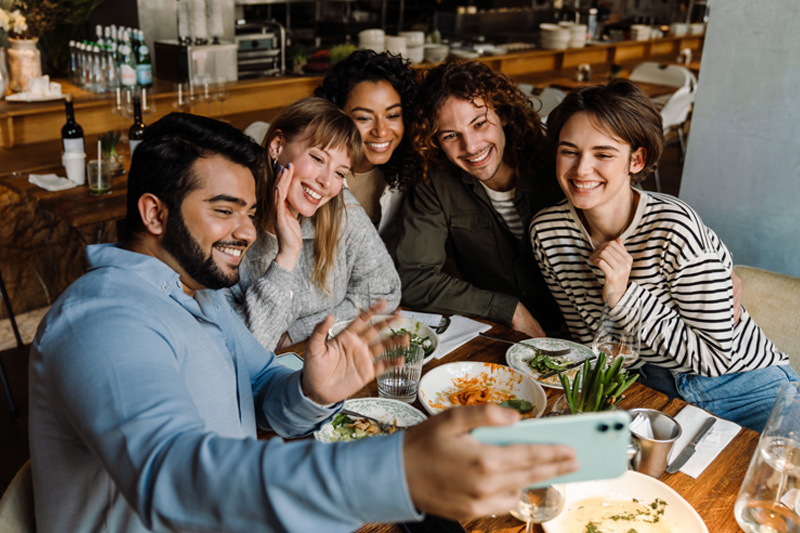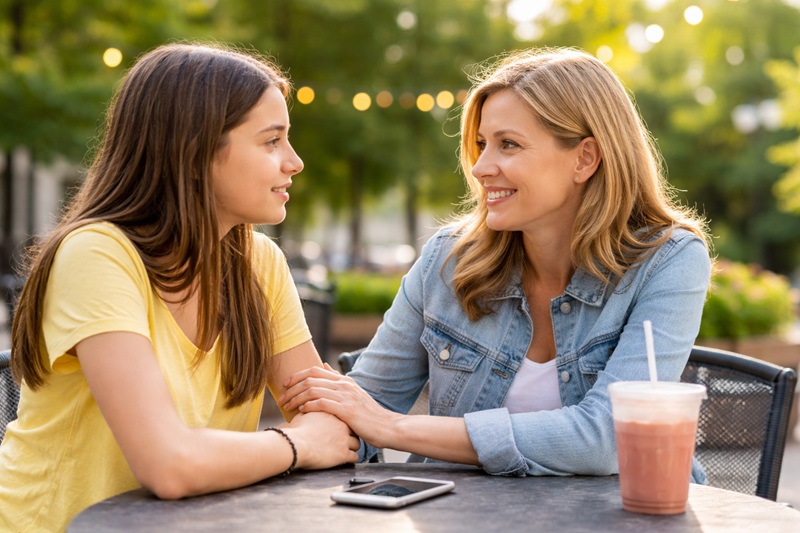For young adults with autism spectrum disorder and other mild intellectual disabilities, navigating social situations can be challenging. Despite the obstacles they face, the ability to build friendships and be part of a supportive community is not only possible but essential for personal development, confidence, and success. When individuals feel connected to others, they experience a sense of belonging that can positively affect their mental health, emotional well-being, and overall life satisfaction. Building friendships and creating strong connections are fundamental aspects of personal growth for all individuals.
However, socialization skills can sometimes present unique challenges, despite these challenges, at the heart of any effort to teach social skills is the recognition that socialization thrives in the context of a community. A strong community provides opportunities for meaningful interactions, positive reinforcement, and safe spaces to practice new skills.
In this blog, we’ll explore how community plays a vital role in helping individuals with intellectual disabilities build friendships, gain confidence, and strengthen connections with others. We will also highlight how our program, “Capability Connections” uses this approach to transform lives and Unlock Social Skills for the Success of our participants.
How Community Supports Social Skill Development
Communities foster connections that allow individuals to practice and improve their social skills in a real-world context. While structured lessons and activities are crucial, it’s through genuine, meaningful interactions with peers that social skills are solidified. For young adults with autism and other disabilities, traditional social environments may feel intimidating. However, being part of a supportive community—whether online or offline—helps alleviate the anxiety of social interactions. Everyone in the program is in this together.
In a strong community, participants can experiment with different social approaches, while they are making mistakes they are learning from them in a judgment-free environment. A community setting encourages organic growth where individuals are free to explore social cues, express their emotions, and collaborate with others. This safe, encouraging environment is essential for learning to navigate the complexities of friendships and social relationships.
Building Friendships in Both Online and Offline Communities
Friendship is a fundamental human need. For young adults with diverse disabilities, building friendships may require extra support and opportunities to connect with like-minded peers. The rise of digital platforms has made it easier to create inclusive online communities where individuals can share interests, participate in group activities, and practice social interactions at their own pace and build confidence.
For example, in an online group dedicated to young adults with autism, members may discuss their favorite hobbies, practice conversation starters, and support one another through shared experiences. These interactions help individuals overcome the fear of social rejection, allowing them to make friends in a comfortable, low-pressure setting. Moreover, online communities often provide the bridge to in-person interactions, giving individuals the confidence to seek out friendships offline as well.
Offline communities, such as social groups, clubs, or workshops, offer another layer of support for building connections. Activities such as group outings, art classes, or social skills workshops provide structured yet casual environments where individuals can engage in face-to-face interactions. These opportunities allow participants to apply the social skills they’ve learned in everyday situations, helping to foster deeper, more authentic connections with others.
The Role of Caregivers and Family in Strengthening Social Networks
Family members and caregivers play a pivotal role in helping young adults with intellectual disabilities build and maintain friendships. They are often the first to introduce individuals to social opportunities and act as facilitators for making connections. Families can encourage participation in community events, social clubs, or even one-on-one playdates or meetups that cater to the individual’s interests.
By being actively involved in this process, families can help create an environment where socialization feels less intimidating and more natural. Caregivers can also guide individuals through the complexities of social interactions by teaching them how to recognize social cues, express empathy, and maintain conversations. Involving family members not only supports the individual’s growth but also reinforces the importance of community in social development.
Additionally, families serve as advocates, ensuring that individuals with intellectual disabilities have access to inclusive, accommodating spaces where they can thrive socially. Whether it’s communicating with educators, supporting participation in social programs, or seeking out specific activities designed for individuals with disabilities, families are key to ensuring that their loved ones have the tools and opportunities to build friendships and make meaningful connections.
The Positive Impact of Friendships on Self-Esteem and Confidence
Friendships are more than just social connections; they are a source of emotional support, belonging, and self-esteem. For individuals with autism and other intellectual disabilities, the ability to form friendships can profoundly impact their mental and emotional well-being. The simple act of having a friend to talk to, share experiences with, and rely on creates a sense of belonging that is essential for personal development.
Building and maintaining friendships also provides individuals with opportunities to practice their social skills, boosting their confidence in navigating various social settings. As individuals experience success in their interactions—whether it’s initiating a conversation, reading social cues, or collaborating in a group—they begin to feel more capable and independent. This increase in confidence leads to greater willingness to engage in future social situations, creating a positive cycle of social growth. Not to mention growth within themselves as well as relationships.
Moreover, friendships offer emotional support that extends beyond structured social activities. When individuals know they have friends who care about them, they are more likely to approach life’s challenges with resilience and optimism. A strong support network of friends can reduce feelings of isolation, anxiety, and depression, contributing to an overall improvement in quality of life.
How “Unlock Social Skills for Success” Builds Community
At “Capability Connections,” we understand the transformative power of community. Our program is designed to help young adults with diverse disabilities build meaningful friendships and strong social networks by providing a supportive environment where individuals can practice and grow their social skills. Through engaging activities, personalized guidance, and interactive workshops, participants are given the tools they need to navigate social situations with confidence.
Our experienced instructors work closely with each participant to ensure they receive individualized support tailored to their unique needs. The program offers both online and offline opportunities for socialization, allowing individuals to connect with peers, build relationships, and apply their skills in real-world scenarios. We believe that with the right guidance and community support, every individual can thrive socially and emotionally.
Join Us in Building Stronger Connections
The power of community lies in its ability to create lasting connections that enrich the lives of individuals with intellectual disabilities. By fostering friendships and supporting social skill development, we can help young adults with autism spectrum disorder and other mild disabilities unlock their potential and lead fulfilling, socially connected lives.
We encourage families, caregivers, and individuals themselves to explore our program, “Capability Connections.” Together, we can create a community where everyone belongs and can be themselves unapologetically while succeeding in social settings. Join us on this journey, and let’s build stronger connections that last a lifetime.



